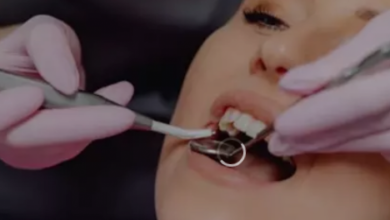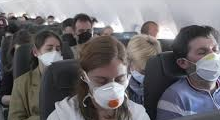“Responding to the Dengue Crisis: Puerto Rico’s Public Health Emergency”

Puerto Rico, a U.S. territory in the Caribbean, is grappling with a significant public health crisis as it declares a state of emergency in response to a surge in dengue fever cases. This mosquito-borne illness has become increasingly prevalent throughout the Americas this year, posing a serious threat to the health and well-being of Puerto Rican residents and visitors alike.
READ: OAS to Step in as Mediator in Guatemala’s Power Transition Crisis
Puerto Rico
Dengue fever, also known as “breakbone fever” due to the severe joint and muscle pain it causes, is transmitted primarily by the Aedes aegypti mosquito. The illness manifests with symptoms such as high fever, severe headaches, body aches, joint pain, and a characteristic rash. In some cases, dengue can progress to a severe and potentially life-threatening form known as dengue hemorrhagic fever, which can lead to internal bleeding, organ failure, and death if left untreated.
Health officials in Puerto Rico have sounded the alarm after identifying a staggering 549 cases of dengue across the island, which is home to approximately 3.2 million people. The capital city of San Juan has been particularly hard-hit, with nearly half of all reported cases concentrated in this urban center. The rapid spread of dengue has overwhelmed healthcare facilities and raised concerns about the ability to effectively manage and contain the outbreak.
Carlos Mellado, the Health Secretary of Puerto Rico, emphasized the severity of the situation, noting that this year’s dengue cases have surpassed historical records. The unprecedented scale of the outbreak prompted the government to declare a public health emergency, signaling the need for urgent and coordinated action to address the crisis.
The declaration of a public health emergency in Puerto Rico aims to mobilize resources and facilitate a coordinated response to the dengue outbreak. While the emergency declaration does not impose immediate restrictions on travel to or from Puerto Rico, it plays a crucial role in enabling the health department to access additional funding for detection, prevention, and control efforts. This funding is essential for implementing mosquito control measures, conducting public awareness campaigns, and providing medical care to those affected by dengue.
Efforts to combat the spread of dengue in Puerto Rico encompass a multifaceted approach that includes mosquito surveillance and control, community engagement, and public education. Mosquito control measures involve identifying and eliminating mosquito breeding sites, such as standing water sources where mosquitoes lay their eggs. This may include initiatives such as larviciding, which targets mosquito larvae, and fogging to reduce adult mosquito populations in affected areas.
Community engagement plays a vital role in raising awareness about dengue prevention and encouraging individuals to take proactive measures to protect themselves and their communities from mosquito bites. This includes promoting the use of insect repellents, wearing protective clothing, and ensuring the proper installation of window screens and door screens to prevent mosquitoes from entering homes and buildings.
Public education campaigns aim to dispel myths and misconceptions about dengue fever while providing accurate information about its transmission, symptoms, and prevention strategies. These campaigns utilize various communication channels, including television, radio, social media, and community outreach activities, to reach diverse audiences across Puerto Rico.
In addition to local efforts to control the outbreak, Puerto Rico is also collaborating with regional and international partners to address the dengue crisis. This includes sharing data and best practices, coordinating response efforts, and leveraging external support to bolster the island’s capacity to respond effectively to the outbreak.
Despite the challenges posed by the dengue outbreak, Puerto Rico remains resilient, with communities coming together to confront this public health threat head-on. By implementing comprehensive strategies for mosquito control, community engagement, and public education, Puerto Rico aims to mitigate the impact of dengue fever and protect the health and well-being of its residents and visitors now and in the future.






